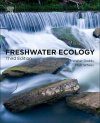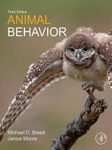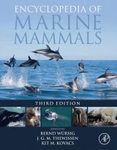About this book
Freshwater Ecology, Third Edition, covers everything from the basic chemical and physical properties of water to the advanced and unifying concepts of community ecology and ecosystem relationships found in continental waters. It provides a solid foundation for courses and future fieldwork, and is updated to include key issues, including how to balance ecological and human health needs, GMOs, and a host of other environmental issues. Freshwater Ecology meaningfully synthesizes the often dispersed and difficult to integrate information on recent advances in aquatic ecology, and is an ideal resource for both students and practitioners in ecology and related fields.
Contents
1. Why study continental aquatic systems?
2. Properties of water
3. Movement of light, heat and chemicals in water
4. Hydrologic cycle and physiography of groundwater habitats
5. Hydrology and physiography of wetland habitats
6. Physiography of flowing water
7. Lakes and reservoirs: physiography
8. Types of Aquatic Organisms
9. Microbes and plants
10. Multicellular animals
11. Evolution of organisms and biodiversity of freshwaters measures of diversity
12. Aquatic chemistry and factors controlling nutrient cycling: Redox and O2
13. Carbon
14. Nitrogen, Sulfur, Phosphorus and other nutrients
15. Unusual or extreme habitats
16. Response to stress, toxic chemicals and other pollutants in aquatic ecosystems
17. Nutrient use and remineralization
18. Trophic state and eutrophication
19. Behavior and interactions among microorganisms and invertebrates
20. Predation and food webs
21. Nonpredatory interspecific interactions among plants
22. Complex community interactions
23. Fish ecology and fisheries
24. Freshwater ecosystems
25. Conclusions
Customer Reviews
Biography
Walter. K. Dodds received his Ph.D. in Biology in 1986 from the University of Oregon. From 1987 to 1990 he was a post doctoral fellow in the Department of Biology at Montana State University. In 1990 he accepted an Assistant Professor position in the Division of Biology at Kansas State University, in 1995 he was promoted to Associate Professor and in 2002 to full Professor. Over the years, Dodds has taught Limnology, Advanced Aquatic Ecology, Microbial Ecology, Principles of Biology, Conservation Biology, Environmental Problems, Origins of Life, Herbivory, Presentations in Ecology, Aquatic Ecology, Stream Ecology, Algal Identification, Algal Ecology, Bacteriology and Freshwater Biology. He has professional memberships in the American Association for the Advancement of Science, the American Society of Limnology and Oceanography, the American Society of Microbiology, the North American Benthological Society, the Phycological Society of America and Sigma Xi. Dodds has grants from agencies including the National Science Foundation, the United States Environmental Protection Agency, the United States Geological Survey, the Kansas Department of Wildlife and Parks and the Kansas Department of Health and Environment. He has been involved in the Konza Prairie Long-Term Ecological Research (LTER) program and provides leadership for the Konza LTER Aquatic and Hydrological Group and the Konza LTER Research Experience for Undergraduates program. Dodds recent research has focused on Aquatic Ecology on Konza Prairie, Nitrogen Uptake Retention and Cycling in Stream Ecosystems, Quality and Quantity of Suspended Solids in Kansas Rivers, and Nutrients and Algae in Streams. Dodds has been invited to present seminars at over 20 US agencies and universities, as well as agencies and universities in Australia, New Zealand and Canada. He has presented at numerous national and international scientific conferences and has produced over 80 peer reviewed publications, 2 book chapters and 3 professional reports.



































